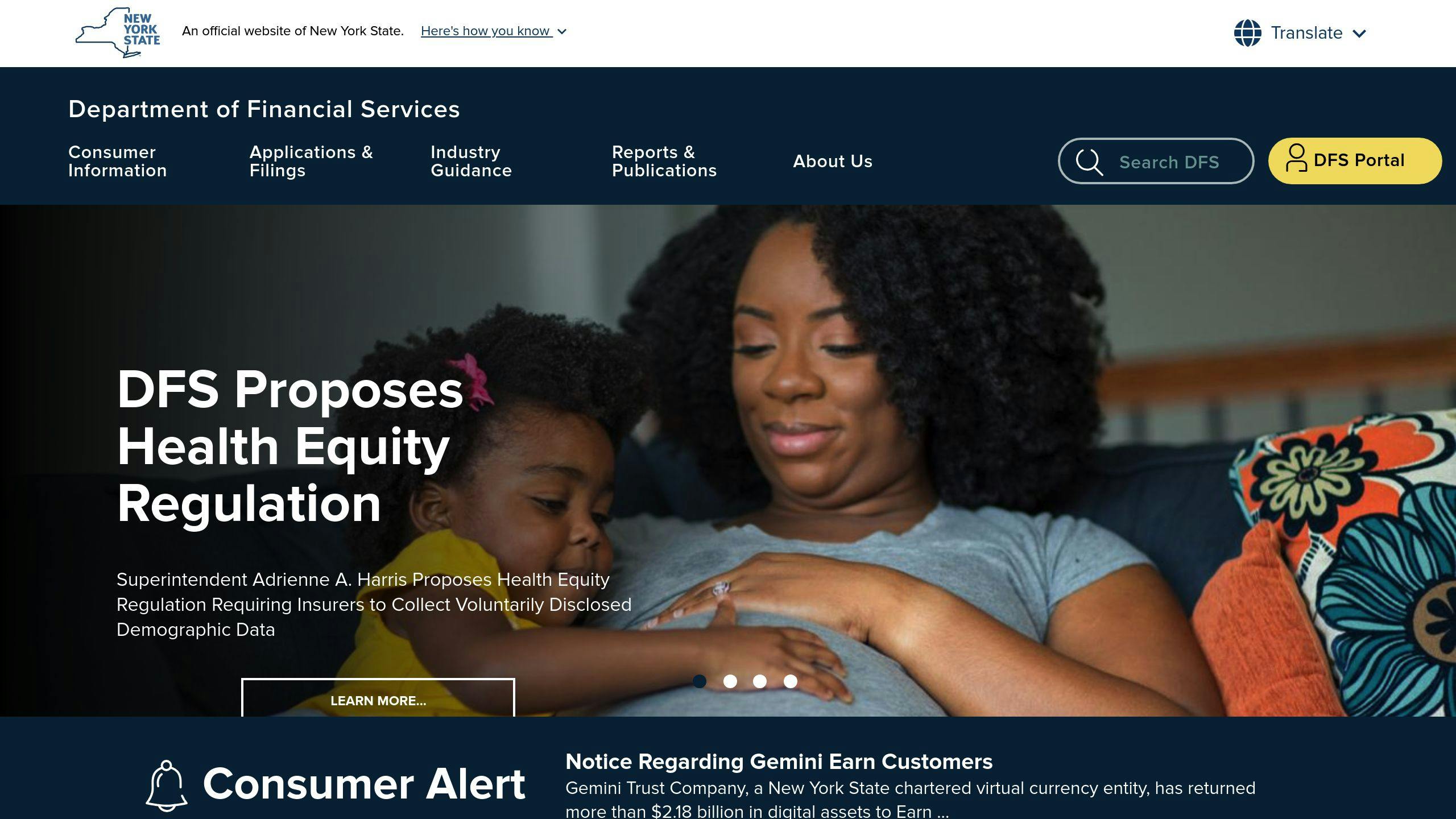Data breach notification laws are getting tougher in 2024. Here's what you need to know:
- Federal rules are changing: New NDAA and OMB rules affect government contractors and agencies.
- State laws are tightening: All 50 states now have breach laws, with faster reporting deadlines.
- Industry-specific rules: FTC has new rules for banks, healthcare faces stricter regulations.
- Reporting deadlines vary: From 30 days (FTC) to 72 hours (NYDFS) depending on jurisdiction.
- Fines are massive: Meta was hit with a $1.3 billion fine for GDPR violations.
Key takeaways:
- Act fast - most laws require reporting within 72 hours
- Be prepared - have a solid incident response plan
- Don't hide breaches - it makes things worse
- Stay informed - rules keep changing
The average data breach now costs $4.45 million. To protect your company:
- Keep up with new rules
- Get good at spotting breaches quickly
- Practice your response plan regularly
- Always encrypt sensitive data
This guide breaks down the latest laws, reporting requirements, and how to stay compliant in 2024.
Related video from YouTube
Federal Rules in 2024
The federal data breach reporting landscape is changing fast in 2024. Here's what IT teams need to know:
NDAA Rules
The National Defense Authorization Act (NDAA) for Fiscal Year 2024 brings new data breach reporting requirements. While we're still waiting for specific regulations, the NDAA expands cybersecurity beyond just the Department of Defense:
- It gives the military a bigger role in protecting critical infrastructure, especially the electric power system.
- The Secretary of Defense can now run cyber operations against Mexican drug cartels.
- There's a push for more cybersecurity teamwork with Taiwan, focusing on defending military networks and fighting cyber threats.
This shows how the NDAA is becoming a go-to for broad cyber laws across federal departments.
Executive Order 14028
Executive Order 14028, from May 2021, is still shaping federal cybersecurity in 2024. It focuses on:
- Making sure software supply chains are secure
- Pushing federal agencies to use zero trust architecture
- Getting rid of roadblocks that stop threat info sharing between the government and private sector
"Executive Order 14028 sets up a clear playbook for government and private sector cybersecurity teamwork." - Exiger
If you work with the federal government, you should:
- Update your contracts to match NIST and CISA guidelines
- Create a Software Bill of Materials (SBOM) to keep track of software parts
- Set up standard incident response plans
OMB Rules
The Office of Management and Budget (OMB) oversees federal agency information security. But recent findings show room for improvement:
- In FY 2022, only 8 out of 23 federal agencies had effective security programs under FISMA rules.
- Some FISMA metrics don't seem to measure information security programs accurately.
The Government Accountability Office (GAO) suggests:
1. Creating metrics that look at why information security programs aren't effective
2. Making FISMA metrics better at measuring performance goals
3. Tackling workforce issues and considering agency size in evaluations
As federal rules keep changing, IT teams need to stay on their toes. Keep updating your incident response plans, improve how you classify data, and beef up your overall data security. That's key for staying compliant and protecting sensitive info in 2024 and beyond.
State Laws Update
Data breach laws at the state level are changing fast in 2024. IT teams across the US are facing new hurdles as states tighten rules to protect consumer data from growing cyber threats.
NYDFS Rules

New York is leading the charge, especially for financial institutions. On November 1, 2023, the New York Department of Financial Services (NYDFS) made big changes to 23 NYCRR Part 500 - the biggest since 2017.
These new rules mean covered entities might need to seriously upgrade their cybersecurity:
- Class A Companies (those with $20 million+ in annual revenue and 2,000+ employees, or $1 billion+ in revenue) need to:
- Get independent audits of their cybersecurity programs
- Watch privileged access activity
- Use endpoint detection and response solutions
The NYDFS said these changes are to deal with smarter threats, easier cyberattacks, and new, affordable ways to manage cyber risk.
If NYDFS regulates you, focus on:
1. Knowing compliance dates (first up: December 1, 2023, for reporting cybersecurity events)
2. Checking your incident response plans
3. Figuring out if you're a "Class A" company
Expect more investigations and enforcement from NYDFS about cybersecurity practices.
Multi-State Rules
New York's not alone. All 50 states, DC, Puerto Rico, Guam, and the Virgin Islands now have breach notification laws. It's a maze for businesses working across states.
Here's what's trending in multi-state data breach laws:
- Faster notification deadlines
- Broader definitions of personal information
- At least 15 states now require "reasonable safeguards" for personal data
To handle this, organizations should:
1. Create a solid written information security program
2. Regularly check data security
3. Practice responding to incidents
4. Have breach notice templates ready
"Know which state laws apply to you and find common ground across them. It'll make reporting breaches easier if it happens." - Burr & Forman LLP
Businesses need to know their data inside and out - what they collect, store, process, and throw away. This helps them follow different state rules for breach notifications.
With cyber-attacks and ransomware on the rise, keeping up with changing state laws is crucial. IT teams need to stay sharp, constantly updating security practices and incident response plans to keep up with the wild world of 2024 regulations and beyond.
Industry Rules
Let's look at the new data breach reporting rules for banks and healthcare in 2024.
FTC Rules for Banks
The FTC's getting tough on financial institutions. From May 13, 2024, non-bank financial entities must report certain data breaches directly to the FTC.
Here's what you need to know:
- Report breaches affecting 500+ consumers
- Do it within 30 days of discovery
- Applies to neobanks, alternative lenders, mortgage brokers, and more
A "notification event" is when someone gets unauthorized access to unencrypted customer info. This covers everything from Social Security numbers to account logins.
"The FTC intends to make the notices it receives public, although financial institutions may request that public disclosure be delayed for law enforcement purposes." - Davis Wright Tremaine
For IT teams in finance, this means:
- Update your incident response plans
- Review your encryption practices
- Improve how you track customer info
Heads up: breaking these rules can cost you up to $51,744 per incident. Ouch.
Healthcare Rules
Healthcare's getting hit with new rules too. The FTC's Health Breach Notification Rule (HBNR) now covers more health and wellness apps and websites.
From July 29, 2024:
- More digital health services fall under the rule
- Vendors must notify affected individuals, the FTC, and sometimes the media after a breach
- For breaches affecting 500+ people, you've got 60 days to report
Samuel Levine from the FTC says:
"Protecting consumers' sensitive health data is a high priority for the FTC."
For healthcare IT teams:
- Check all your digital health offerings
- Beef up your data security
- Get your breach reporting procedures in order
The FTC's not messing around. They've already gone after companies like GoodRx and Easy Healthcare for breaking these rules.
sbb-itb-9890dba
Reporting Rules Chart
Data breach notification laws can be a maze for IT teams. Here's a quick look at how different places handle reporting:
| Where | When to Report | Who to Tell | Extra Notes |
|---|---|---|---|
| Federal (FTC) | 30 days | FTC, affected people | For 500+ people |
| New York (NYDFS) | ASAP, max 72 hours | NYDFS, affected people | Class A companies: more rules |
| California | No delay | CA Attorney General (500+ residents), affected people | Must offer credit monitoring |
| HIPAA | ASAP, max 60 days | HHS, affected people, media (big breaches) | Specific info needed |
| Maryland | Before telling people | MD Attorney General, affected people | Tell AG first |
This chart shows how rules change depending on where you are. The FTC's new rule for financial companies (starting May 13, 2024) says report in 30 days if 500+ people are affected. But in New York? You've got 72 hours, tops.
California throws in a twist: tell the state Attorney General if over 500 residents are hit. They also make you offer credit monitoring.
For healthcare folks, HIPAA gives you up to 60 days to report breaches of protected health info to the government and affected people.
Maryland's different: you have to tell the state Attorney General before anyone else. This lets the state step in if needed.
Remember, these rules keep changing. The IAPP updates a big chart of state data breach laws, including:
- Links to each state's laws
- When to notify
- When you don't have to notify
- Who else to tell (like state agencies)
"This tool is for info only, not legal advice. Always check official sources for the latest rules." - IAPP
What does this mean for IT teams? You need a flexible plan. Here's what to do:
- Keep your breach notification plans up-to-date
- Know the rules for every place you operate
- Have notification templates ready to go, but make sure you can tweak them fast
How to Meet Requirements
Meeting data breach notification requirements in 2024 isn't rocket science. But it does take some work. Here's how to nail it:
Streamline Your Incident Response
First things first: get your incident response plan in shape.
Update it every few months. Make sure it's in line with the latest rules.
Run drills with your team. Everyone should know their job when things hit the fan.
And here's a pro tip: create notification templates. When you're racing against the clock (like with those 72-hour NYDFS rules), you'll be glad you did.
Leverage Advanced Monitoring Tools
You can't respond to what you don't know about. That's where monitoring tools come in.
Take eyer.ai, for example. It uses AI to spot weird stuff in your data. It tells you what to do about it. And it plays nice with your other tools.
With tools like this, you're not just playing defense. You're on the offensive against breaches.
Automate Where Possible
Automation is your friend here. It's faster and less error-prone than humans.
Classify your data automatically. Set up alerts that ping key people ASAP when something's fishy. Use software that spits out compliance reports without you lifting a finger.
Conduct Regular Audits
Don't skip the audits. They're your reality check.
Keep your data inventory up-to-date. Know what you're protecting.
Check who has access to the sensitive stuff. If they don't need it, they don't get it.
Scan for weak spots in your systems. Then fix them.
Stay Informed on Regulatory Changes
The rules of the game keep changing. You need to keep up.
Follow the regulatory bodies and legal eagles on social media. They'll keep you in the loop.
Join some industry groups. Your peers are dealing with the same headaches. Learn from them.
And don't be shy about calling in the experts. Sometimes, you need a pro to look over your shoulder.
Rule Breaking Costs
Data breach notification law violations are hitting companies where it hurts: their wallets. Recent years have seen fines skyrocket, with organizations facing massive penalties for mishandling sensitive data and failing to report breaches quickly.
Recent Fines
Regulators aren't playing around. They're slapping companies with record-breaking fines for breaking data breach reporting rules. Here's a look at some eye-popping penalties:
Meta's Billion-Dollar Blow

In May 2023, Meta (Facebook's parent company) got hit with a €1.2 billion ($1.3 billion) fine from Ireland's Data Protection Commission. Why? They broke GDPR rules by sending EU personal data to the US without proper safeguards.
Amazon's GDPR Stumble

Luxembourg's data watchdog fined Amazon €746 million ($877 million) in July 2021 for GDPR violations. Amazon claims no data breach occurred, but the fine shows how seriously regulators take data protection rules.
T-Mobile's Costly Oversight
T-Mobile had to cough up $60 million in 2023 for failing to stop and report unauthorized data access. The Committee on Foreign Investment in the U.S. (CFIUS) imposed this fine due to violations related to T-Mobile's Sprint Corp acquisition in 2020.
Uber's Delayed Disclosure Dilemma

Uber's slow response to a massive data breach cost them $148 million in 2018. They failed to promptly report a breach affecting 600,000 drivers and 57 million users, violating state data breach notification laws.
These fines aren't just big numbers – they're a clear message from regulators. John Magee, a data privacy expert at DLA Piper in Dublin, puts it this way:
"The Irish Data Protection Commission continued to play a central role in shaping GDPR interpretations this year, notably with key decisions and fines on issues ranging from transparency and data transfer to information security and children's privacy."
To really grasp the scale of these penalties, check out this table:
| Company | Fine Amount | Imposing Authority | Year |
|---|---|---|---|
| Meta | $1.3 billion | Irish Data Protection Commission | 2023 |
| Amazon | $877 million | Luxembourg National Commission for Data Protection | 2021 |
| T-Mobile | $60 million | Committee on Foreign Investment in the U.S. | 2023 |
| Uber | $148 million | Various State Authorities | 2018 |
These massive fines are a wake-up call. Companies need to take data protection seriously and report breaches ASAP – or risk paying a hefty price.
Don't expect regulators to ease up anytime soon. As we move through 2024, companies need to stay on their toes. Having a solid, quick, and thorough data breach notification process isn't just good practice – it's essential to avoid these wallet-draining penalties.
Conclusion
The world of data breach notification laws in 2024 is no joke. The rules are tougher, the fines are bigger, and the consequences of messing up can be brutal.
Here's what you need to know:
Act fast: Most laws now say you've got to report breaches within 72 hours. Drag your feet, and you're looking at hefty fines and a higher chance of data misuse.
Fines are through the roof: Just ask Meta. They got slapped with a €1.2 billion fine in 2023 for GDPR violations. Ouch.
Be prepared: Having solid security measures and a plan for when things go wrong can save your bacon.
Don't try to hide: Covering up a breach usually makes things WAY worse. You'll end up with a trashed reputation and even bigger fines.
The average data breach now costs $4.45 million. That's up 15% in just three years. If that doesn't make you take this stuff seriously, I don't know what will.
"Taking responsibility for the personal data you collect, store and use will help you to avoid a fine." - ICO
Want to stay on top of things? Here's what to do:
- Keep up with the latest rules in different countries.
- Get good at spotting breaches quickly.
- Practice your "oh crap, we've been breached" plan regularly.
- Encrypt your sensitive data. Always.



